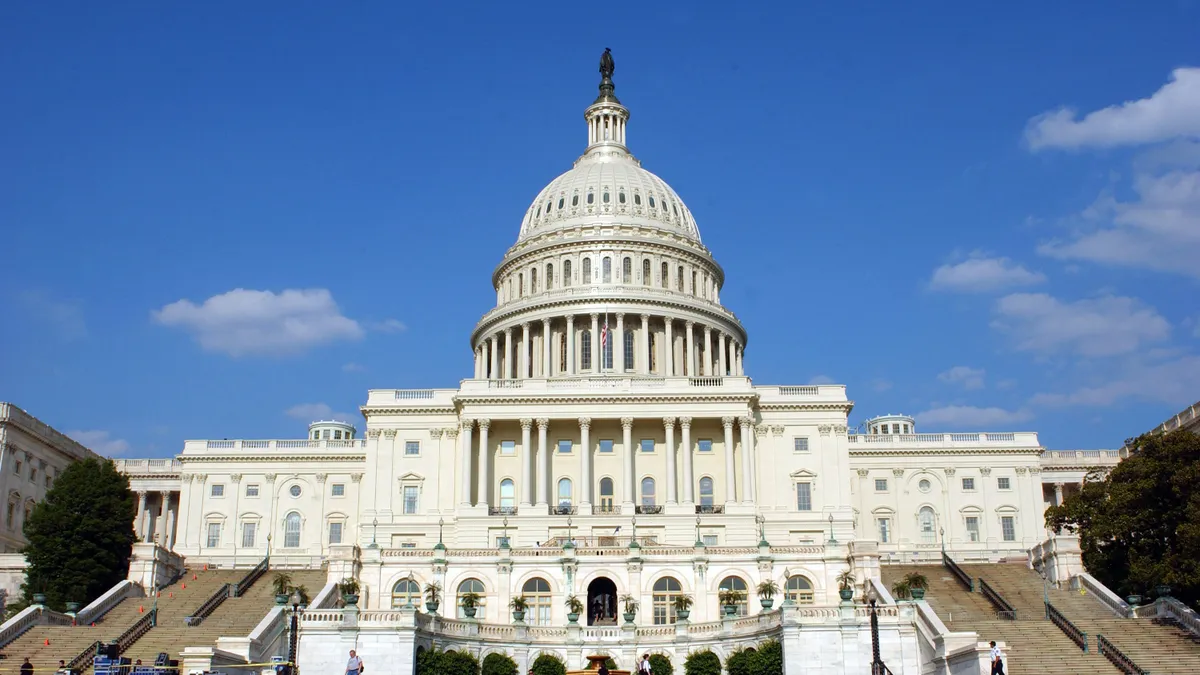Dive Brief:
- Lawmakers and witnesses expressed varying viewpoints about limitations on classroom materials and discussions during a House subcommittee hearing Thursday, with some calling out restrictions on references to racism and sexual orientation as assaults on free speech rights and attempts to fuel bigotry.
- A few others, however, said recent "parents' rights" local and state measures concerning curriculum oversight and transparency will keep schools focused on core academic instruction rather than on divisive and polarizing topics.
- Hearing participants also raised concerns about how conflicts over curriculum could contribute to persistent educator shortages, frustrations that parents' input isn't being considered, and how controversial topics are a distraction from academic and social-emotional recovery from the COVID-19 pandemic.
Dive Insight:
All but one of the witnesses at the House Civil Rights and Civil Liberties Subcommittee hearing of the Oversight and Reform Committee expressed alarm that increased efforts to prohibit classroom discussions about race and LGBTQ issues undermine public education. Some went so far as to say rules limiting these conversations is an oppressive tactic that could contribute to creating authoritarian governments.
"It's very important not to see changes like this as normal and to allow them to come creeping in so that they become the new normal," said Timothy Synder, the Richard C. Levin professor of history at Yale University.
Specifically, witnesses and lawmakers at the two-hour hearing referenced actions by state legislatures to limit conversations about critical race theory, a college-level theory used in cross-disciplinary research to examine connections between race and societal institutions, such as education, labor, housing and justice systems. Some educators and researchers say CRT is not taught in K-12 schools, but others dispute that.
Nearly 900 school districts representing 35% of the nation's K-12 students in 2020 and 2021 were impacted by local actions related to anti-CRT efforts, according to a January study by researchers at the University of California, Los Angeles and the University of California, San Diego.
Speakers at Thursday's hearing also pointed to laws and policies that dissuade educators from discussing or acknowledging gender and sexuality. According to the Education Civil Rights Alliance, 42 states have proposed or passed legislation restricting educators' ability to teach about racism and sexism.
Witness Suzanne Nossel, CEO of PEN America, a nonprofit that works to protect free expression, called this type of legislation "educational gag orders."
Efforts to prohibit these conversations throw up barriers to inclusive schools, said Willie Carver, a teacher at Montgomery County High School in Mount Sterling, Kentucky.
"I think if we politicize inclusion — and say welcoming a student and making sure that this student feels safe, making sure that the student feels heard — if we somehow suggest that this in itself is a political act, then it becomes impossible to make every single child feel safe," Carver said.
Carver, who identifies as gay, was named Kentucky's 2022 Teacher of the Year. Yet, he said he no longer feels safe at school because of anti-LGBTQ threats made against the Genders and Sexualities Alliances club he sponsors and because "hatred is politically protected now."
Carver predicts few LGBTQ teachers will continue to teach due to the discord. "Politicizing our existence has darkened schools. I am made invisible," Carver said.
2022 Kentucky Teacher of the Year @WillieETCarver testifies before U.S. House Subcommittee on Civil Rights and Civil Liberties
— KY Dept of Education (@KyDeptofEd) May 19, 2022
“Strong public schools are an issue of national security and moral urgency"
Read more about his testimony: https://t.co/k0mac8WBbC #KyEd pic.twitter.com/ECmeWgxkKS
High school student Claire Mengel, from Ohio, spoke about how educators and students feel scared as resistance to diversity and inclusion efforts spreads. "The anti-CRT rhetoric by the school board is causing a measurable stress on our students and staff," Mengel said.
Witness Virginia Gentles, director of the Education Freedom Center, a nonprofit that supports reforms to expand educational options, said the bigger crisis in schools is pandemic-related school closures that led to learning loss. She also criticized what she said is a slow response by school systems to use federal emergency funding to help students recover academically.
"Policymakers should empower parents to leave public schools that do not prioritize academic instruction and enroll their children in options committed to educating students," Gentles said.
Ranking Subcommittee Member Nancy Mace, a Republican from South Carolina, also focused on student learning loss. The hearing's theme of classroom censorship, Mace said, may "discredit legitimate and lawful attempts to ensure our curriculums are designed to empower students to achieve their full potential."
"'I'm concerned that we're simply not doing enough to get our students back on track," Mace said. "Our children's future, our country's future, is at stake."







 Dive Awards
Dive Awards






